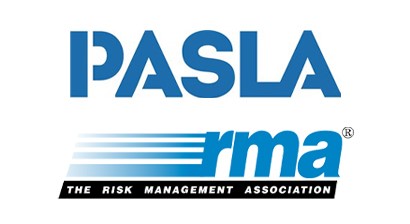The Pan Asia Securities Lending Association (PASLA) and the Risk Management Association (RMA) today launched the Global Framework for ESG and Securities Lending (GFESL). Presented in partnership by the two industry associations, the GFESL aims to provide a starting point in helping institutional investors apply Environmental, Social and Governance (ESG) principles to their securities lending programmes in alignment with their organisational ESG policies.
The GFESL provides standardised options, essential background and key considerations across the six main touchpoints between securities finance and ESG – including voting rights, transparency in the lending chain and lending over dividend record dates – and offers suggestions on best practice in each case.
This first edition of the GFESL offers practical and technical guidance to institutional investors or beneficial owners in particular, but subsequent iterations are expected to focus more on the relevance of ESG to other stakeholders in securities lending, such as exchanges and regulators.
Key best practice recommendations
Among the best practice recommendations, the GFESL suggests that institutional investors that lend securities should consider:
- Voting rights: Assessing or developing a policy for recalling loaned securities based on ESG considerations in their proxy voting framework; identifying the types of shareholder resolutions on which they want to vote by company and by issue.
- Transparency in the lending chain: Implementing effective minimum standards that reflect their corporate-level sustainability framework; for example, applying an ESG lens to selecting direct counterparties.
- Collateral and cash reinvestment: Applying the same ESG standards to the non-cash collateral they are prepared to accept when they lend securities as those that they apply to their investment portfolio.
- Lending over record date: Establishing a clear policy on lending securities over dividend record dates and communicating this with agent lenders; monitoring counterparty exposure in order to identify unusual activity.
- The short side of the market: Identifying the areas in which they see potential for a conflict between facilitating participation in the short side of the market and their corporate ESG commitments; developing a policy to govern the facilitation of participation in short-selling that includes specific guidance on the circumstances under which they would limit lending or decline to lend.
ISLA has also endorsed the GFESL. “We are delighted to see the publication of these ESG guidelines for the investment community from PASLA and the RMA,” said Andrew Dyson, CEO, ISLA. “Recognising that regional variances especially from a regulatory perspective will drive different outcomes, at least in the short term, it is vital that associations lead the way on defining best practice to fully align securities lending within an ESG investment framework across their various regions. We very much look forward to further collaboration and cooperation between our respective members and organisations in and around this important area.”
“By putting this research into action via the Framework, PASLA, RMA and ISLA believe that transparency about ESG factors in securities lending can be significantly enhanced,” said Paul Solway, Director and Communications Officer at PASLA. “A clear and widely-accepted decision-making framework should enable lenders to better define their approach, align it with corporate-level objectives, communicate it to other participants in the value chain and monitor its impacts. Ultimately, by facilitating the compatibility of ESG principles with securities lending, the Framework can be instrumental in ensuring the continuing liquidity and efficiency of securities lending markets globally.”
To access the Global Framework for ESG and Securities Lending click here.
